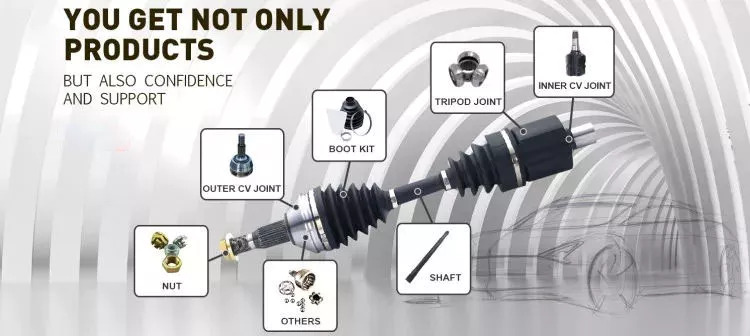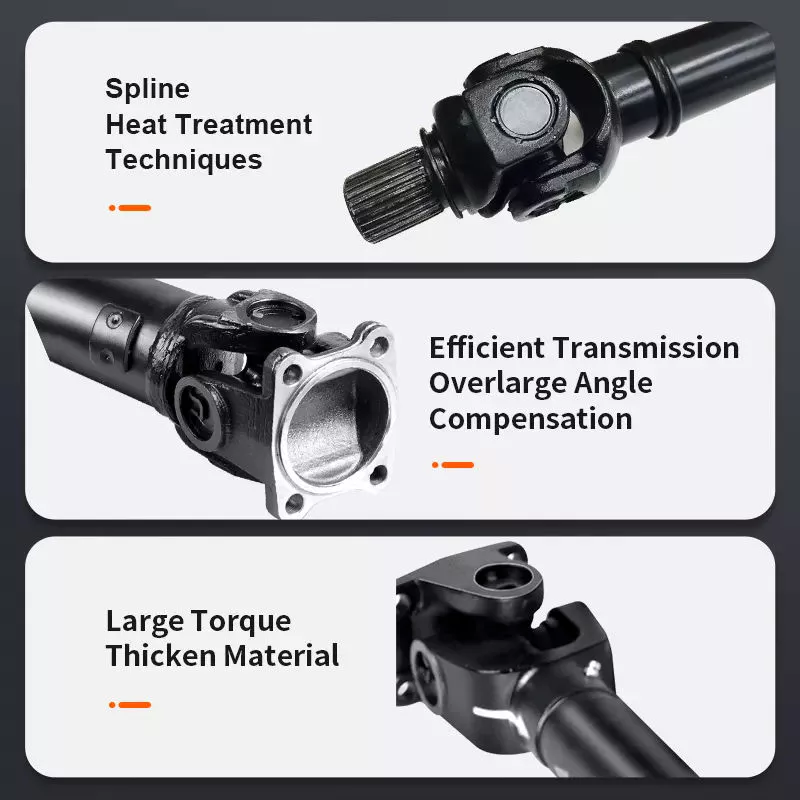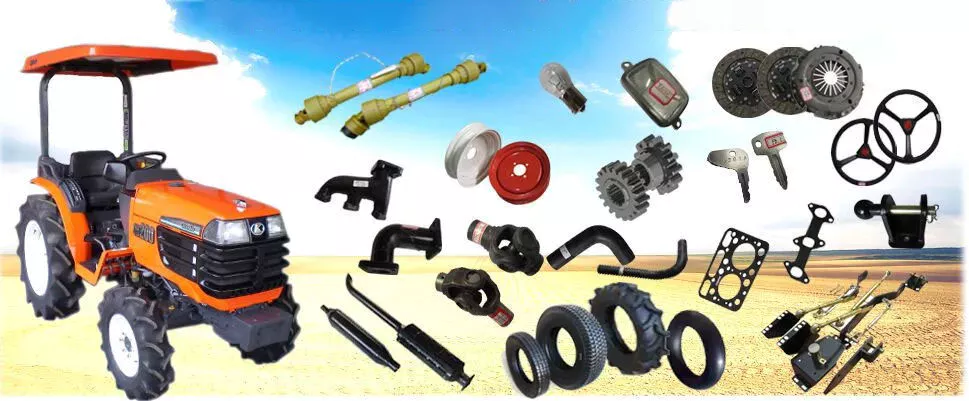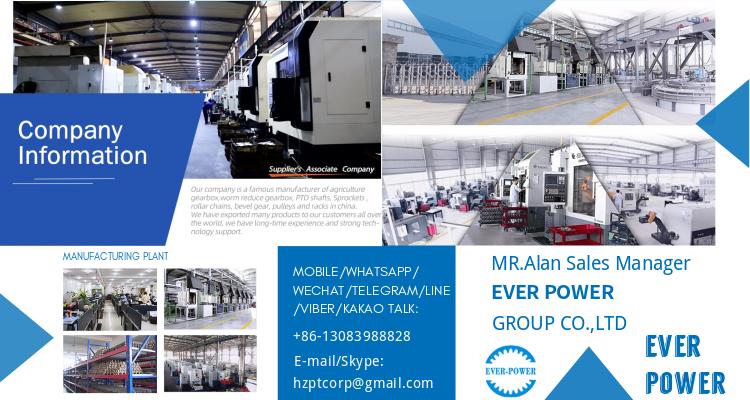Product Description
Working principle
When the cone crusher is working, the motor drives the eccentric bearing bushing via spring coupling, transmission shaft and a couple of cone gear wheel. The crushing cone axis is forced to swing by the eccentric bearing bushing, which makes the mantle sometimes close to the bowl liner, and sometimes far away from the bowl liner. The raw materials are pressed, impacted and finally crushed in the crushing chamber.
Product Description
Single cylinder Hydraulic cone crusher is widely used in Quarrying and Mining industry, metallurgical, rod construction, building material, chemical industry and silicate industry etc. It can be used as secondary, tertiary or quaternary crushing equipment, and can crush materials of above medium hardness, such as iron ores, copper ores, limestone, quartz, granite, etc.
Specification
Single cylinder hydraulic cone crusher specification:
| Model | DP-100 | DP-160 | DP-250 | DP-300 | |
| Motor power(kw) | 75-90 | 110-160 | 132-250 | 200-315 | |
| Stroke(mm) | 16,20,25 | 18,25,32,40 | 18,25,32,40 | 18,25,32,40 | |
| Weight (T) | 9.8 | 12.8 | 23.2 | 38.5 | |
| Max feeding size(mm) | Medium Coarse Extra coarse | 200 250 | 250 330 | 280 380 | 380 500 |
Capacity of middle crushing
| DP-100S CAPACITY (t/h) | ||||||||||||
|
Discharging Stroke (mm) |
20 | 25 | 30 | 35 | 40 | 45 | ||||||
| 16 | 80-90 | 105-115 | 120-130 | 135-145 | 145-165 | 155-175 | ||||||
| 20 | 120-130 | 145-155 | 160-180 | 170-200 | 185-215 | |||||||
| 25 | 185-195 | 200-220 | 210-230 | |||||||||
| DP-160S (t/h) | ||||||||||||
|
Discharging Stroke(mm) |
20 | 25 | 30 | 35 | 40 | 45 | 50 | |||||
| 18 | 110-140 | 140-170 | 160-190 | 180-210 | 200-230 | 230-260 | ||||||
| 25 | 170-220 | 190-240 | 210-260 | 230-280 | ||||||||
| 32 | 230-280 | 270-320 | 280-350 | |||||||||
| DP-250S (t/h) | |||||||
|
Discharging Stroke(mm) |
20 | 25 | 30 | 35 | 40 | 45 | 50 |
| 18 | 170-190 | 170-210 | 190-230 | 210-255 | 235-275 | 255-295 | |
| 25 | 220-270 | 255-315 | 290-345 | 320-350 | 330-350 | ||
| 32 | 360-400 | 380-420 | 400-420 | ||||
| 40 | 450-500 | 480-530 | |||||
| DP-300S (t/h) | ||||||||
|
Discharging Stroke(mm) |
45 | 50 | 55 | 60 | 65 | 70 | 75 | 80 |
| 18 | 300-350 | 325-375 | 375-425 | 400-450 | 425-475 | 450-500 | 500-550 | 550-600 |
| 25 | 500-550 | 550-600 | 600-650 | 650-700 | 700-750 | 750-800 | ||
| 32 | 650-700 | 700-750 | 750-800 | 825-875 | 900-950 | 950-1000 | ||
Capacity of fine crushing
| DP-100 CAPACITY (t/h) | |||||||
|
Discharging Stroke(mm) |
7 | 10 | 13 | 16 | 19 | 22 | 25 |
| 16 | 35-45 | 45-55 | 55-65 | 65-75 | 75-85 | 80-90 | 85-95 |
| 20 | 45-50 | 50-60 | 60-70 | 70-85 | 90-100 | 100-110 | |
| 25 | 55-65 | 65-75 | 75-90 | 100-115 | |||
| DP-160 CAPACITY (t/h) | |||||||
|
Discharging Stroke(mm) |
8 | 10 | 15 | 20 | 25 | 30 | 33 |
| 18 | 60-70 | 70-90 | 80-105 | 100-125 | 135-150 | 160-175 | 170-185 |
| 25 | 90-110 | 110-130 | 130-155 | 160-180 | 185-210 | ||
| 32 | 140-160 | 170-190 | 190-200 | ||||
| 40 | 200-220 | 200-240 | |||||
| DP-250 CAPACITY (t/h) | |||||||||
|
Discharging Stroke(mm) |
8 | 12 | 16 | 20 | 24 | 28 | 32 | 36 | 40 |
| 25 | 100-120 | 120-140 | 140-160 | 160-180 | 180-200 | 200-220 | 220-245 | 245-265 | 265-290 |
| 32 | 100-130 | 130-160 | 170-200 | 195-225 | 200-250 | 250-280 | 275-305 | 305-335 | |
| 40 | 160-190 | 215-245 | 245-275 | 280-310 | 315-345 | 335-365 | |||
| DP-300 (t/h) | |||||||||
|
Discharging Stroke(mm) |
8 | 12 | 16 | 20 | 24 | 30 | 35 | 40 | 45 |
| 25 | 150-170 | 165-185 | 190-210 | 230-250 | 250-270 | 280-300 | 320-340 | 340-370 | 370-390 |
| 32 | 200-220 | 230-250 | 270-290 | 300-330 | 370-390 | 420-430 | 470-490 | ||
| 40 | 230-250 | 260-280 | 320-350 | 375-405 | 420-450 | 470-500 | |||
/* January 22, 2571 19:08:37 */!function(){function s(e,r){var a,o={};try{e&&e.split(“,”).forEach(function(e,t){e&&(a=e.match(/(.*?):(.*)$/))&&1
| Type: | Cone Crusher |
|---|---|
| Motor Type: | AC Motor |
| Motor Power: | 75kw |
| Application: | Construction |
| Materials: | Gangue |
| Outlet Size: | 20-50mm |
| Customization: |
Available
| Customized Request |
|---|

What factors should be considered when designing an efficient driveline system?
Designing an efficient driveline system involves considering various factors that contribute to performance, reliability, and overall system efficiency. Here are the key factors that should be considered when designing an efficient driveline system:
1. Power Requirements:
The power requirements of the vehicle play a crucial role in designing an efficient driveline system. It is essential to determine the maximum power output of the engine and ensure that the driveline components can handle and transfer that power efficiently. Optimizing the driveline for the specific power requirements helps minimize energy losses and maximize overall efficiency.
2. Weight and Packaging:
The weight and packaging of the driveline components have a significant impact on system efficiency. Lightweight materials and compact design help reduce the overall weight of the driveline, which can improve fuel efficiency and vehicle performance. Additionally, efficient packaging ensures that driveline components are properly integrated, minimizing energy losses and maximizing available space within the vehicle.
3. Friction and Mechanical Losses:
Minimizing friction and mechanical losses within the driveline system is crucial for achieving high efficiency. Frictional losses occur at various points, such as bearings, gears, and joints. Selecting low-friction materials, optimizing lubrication systems, and implementing efficient bearing designs can help reduce these losses. Additionally, employing advanced gear designs, such as helical or hypoid gears, can improve gear mesh efficiency and reduce power losses.
4. Gear Ratios and Transmission Efficiency:
The selection of appropriate gear ratios and optimizing transmission efficiency greatly impacts driveline efficiency. Gear ratios should be chosen to match the vehicle’s power requirements, driving conditions, and desired performance characteristics. In addition, improving the efficiency of the transmission, such as reducing gear mesh losses and enhancing hydraulic or electronic control systems, can contribute to overall driveline efficiency.
5. Aerodynamic Considerations:
Aerodynamics play a significant role in a vehicle’s overall efficiency, including the driveline system. Reducing aerodynamic drag through streamlined vehicle design, efficient cooling systems, and appropriate underbody airflow management can enhance driveline efficiency by reducing the power required to overcome air resistance.
6. System Integration and Control:
Efficient driveline design involves seamless integration and control of various components. Employing advanced control systems, such as electronic control units (ECUs), can optimize driveline operation by adjusting power distribution, managing gear shifts, and optimizing torque delivery based on real-time driving conditions. Effective system integration ensures smooth communication and coordination between driveline components, improving overall efficiency.
7. Environmental Considerations:
Environmental factors should also be taken into account when designing an efficient driveline system. Considerations such as emissions regulations, sustainability goals, and the use of alternative power sources (e.g., hybrid or electric drivetrains) can influence driveline design decisions. Incorporating technologies like regenerative braking or start-stop systems can further enhance efficiency and reduce environmental impact.
8. Reliability and Durability:
Designing an efficient driveline system involves ensuring long-term reliability and durability. Selecting high-quality materials, performing thorough testing and validation, and considering factors such as thermal management and component durability help ensure that the driveline system operates efficiently over its lifespan.
By considering these factors during the design process, engineers can develop driveline systems that are optimized for efficiency, performance, and reliability, resulting in improved fuel economy, reduced emissions, and enhanced overall vehicle efficiency.

What safety precautions should be followed when working with driveline components?
Working with driveline components requires careful attention to safety to prevent accidents, injuries, and damage to equipment. Driveline components, such as transmissions, drive shafts, and differentials, can involve rotating parts, high torque, and heavy machinery, making it essential to follow proper safety precautions. Here are some important safety measures to consider when working with driveline components:
1. Personal Protective Equipment (PPE):
Always wear appropriate personal protective equipment, including safety glasses, gloves, and protective clothing. PPE helps protect against potential hazards such as flying debris, sharp edges, and contact with hot or moving parts. Use steel-toed safety boots to protect your feet from heavy objects or accidental impacts.
2. Lockout/Tagout:
Prior to working on driveline components, follow lockout/tagout procedures to ensure the equipment is properly shut down and isolated from its power source. Lockout/tagout involves disconnecting power, applying locks or tags to control switches, and verifying that the equipment is de-energized. This prevents accidental startup or release of stored energy that could cause serious injuries.
3. Vehicle/Equipment Stability:
Ensure that the vehicle or equipment is stable and securely supported before working on driveline components. Use appropriate jack stands or hoists to provide a stable and reliable support structure. Never rely solely on hydraulic jacks or unstable supports, as they can lead to accidents or equipment damage.
4. Proper Lifting Techniques:
When handling heavy driveline components, use proper lifting techniques to prevent strains or injuries. Lift with your legs, not your back, and get assistance when dealing with heavy or bulky components. Use mechanical lifting aids, such as hoists or cranes, when necessary to avoid overexertion or dropping components.
5. Component Inspection:
Prior to installation or maintenance, carefully inspect driveline components for any signs of damage, wear, or corrosion. Replace any worn or damaged parts to ensure safe and reliable operation. Follow the manufacturer’s guidelines and specifications for component inspection, maintenance, and replacement intervals.
6. Proper Tools and Equipment:
Use the correct tools and equipment for the job. Improper tools or makeshift solutions can lead to accidents, damaged components, or stripped fasteners. Follow the manufacturer’s recommendations for specialized tools or equipment needed for specific driveline components.
7. Follow Service Manuals and Procedures:
Refer to the relevant service manuals and follow proper procedures when working on driveline components. Service manuals provide step-by-step instructions, torque specifications, and safety precautions specific to the vehicle or equipment you are working on. Adhering to these guidelines ensures proper disassembly, installation, and adjustment of driveline components.
8. Proper Disposal of Fluids and Waste:
Dispose of fluids, such as oil or coolant, and waste materials in accordance with local regulations. Spilled fluids can create slip hazards, and improper disposal can harm the environment. Use appropriate containers and disposal methods as prescribed by local laws and regulations.
9. Training and Knowledge:
Ensure that individuals working with driveline components have received proper training and possess the necessary knowledge and skills. Inadequate training or lack of knowledge can lead to errors, accidents, or improper installation, compromising safety and performance.
10. Follow Workplace Safety Regulations:
Adhere to workplace safety regulations and guidelines established by relevant authorities. These regulations may include specific requirements for working with driveline components, such as safety standards, training requirements, and equipment certifications. Stay updated on safety regulations and ensure compliance to maintain a safe working environment.
By following these safety precautions, individuals can minimize the risk of accidents, injuries, and equipment damage when working with driveline components. Safety should always be a top priority to promote a secure and productive work environment.

How do drivelines handle variations in torque, speed, and angles of rotation?
Drivelines are designed to handle variations in torque, speed, and angles of rotation within a power transmission system. They incorporate specific components and mechanisms that enable the smooth and efficient transfer of power while accommodating these variations. Here’s a detailed explanation of how drivelines handle variations in torque, speed, and angles of rotation:
Variations in Torque:
Drivelines encounter variations in torque when the power requirements change, such as during acceleration, deceleration, or when encountering different loads. To handle these variations, drivelines incorporate several components:
1. Clutch: In manual transmission systems, a clutch is used to engage or disengage the engine’s power from the driveline. By partially or completely disengaging the clutch, the driveline can temporarily interrupt power transfer, allowing for smooth gear changes or vehicle stationary positions. This helps manage torque variations during shifting or when power demands change abruptly.
2. Torque Converter: Automatic transmissions employ torque converters, which are fluid couplings that transfer power from the engine to the transmission. Torque converters provide a certain amount of slip, allowing for torque multiplication and smooth power transfer. The slip in the torque converter helps absorb torque variations and dampens abrupt changes, ensuring smoother operation during acceleration or when power demands fluctuate.
3. Differential: The differential mechanism in drivelines compensates for variations in torque between the wheels, particularly during turns. When a vehicle turns, the inner and outer wheels travel different distances, resulting in different rotational speeds. The differential allows the wheels to rotate at different speeds while distributing torque to each wheel accordingly. This ensures that torque variations are managed and power is distributed effectively to optimize traction and stability.
Variations in Speed:
Drivelines also need to handle variations in rotational speed, especially when the engine operates at different RPMs or when different gear ratios are selected. The following components aid in managing speed variations:
1. Transmission: The transmission allows for the selection of different gear ratios, which influence the rotational speed of the driveline components. By changing gears, the transmission adjusts the speed at which power is transferred from the engine to the driveline. This allows the driveline to adapt to different speed requirements, whether it’s for quick acceleration or maintaining a consistent speed during cruising.
2. Gearing: Driveline systems often incorporate various gears in the transmission, differential, or axle assemblies. Gears provide mechanical advantage by altering the speed and torque relationship. By employing different gear ratios, the driveline can adjust the rotational speed and torque output to match the requirements of the vehicle under different operating conditions.
Variations in Angles of Rotation:
Drivelines must accommodate variations in angles of rotation, especially in vehicles with flexible or independent suspension systems. The following components help manage these variations:
1. Universal Joints: Universal joints, also known as U-joints, are flexible couplings used in drivelines to accommodate variations in angles and misalignments between components. They allow for smooth power transmission between the drive shaft and other components, compensating for changes in driveline angles during vehicle operation or suspension movement. Universal joints are particularly effective in handling non-linear or variable angles of rotation.
2. Constant Velocity Joints (CV Joints): CV joints are specialized joints used in drivelines, especially in front-wheel-drive and all-wheel-drive vehicles. They allow the driveline to handle variations in angles while maintaining a constant velocity during rotation. CV joints are designed to mitigate vibrations, power losses, and potential binding or juddering that can occur due to changes in angles of rotation.
By incorporating these components and mechanisms, drivelines effectively handle variations in torque, speed, and angles of rotation. These features ensure smooth power transfer, optimal performance, and enhanced durability in various driving conditions and operating scenarios.


editor by CX 2024-03-08
Best factory made in China – replacement parts – PTO shaft manufacturer & factory 8 toyota 4runner drive shaft Inches Tractor Pto Powered Hydraulic Wood Crusher with ce certificate top quality low price
We – EPG Team the most significant agricultural gearbox and pto factory in China with 5 various branches. For far more information: Cellular/whatsapp/telegram/Kakao us at: 0086-13083988828

travel shaft kancil 850 vehicle Underneath pto shaft lock pin the pto shaft restore ontario assistance vehicle shaft of pto shaft on john deere managerial 2011 ram 2500 entrance push shaft sense wj front driveshaft of ford naa pto shaft measurement “Serving 2007 bmw x3 drive shaft replacement agriculture, pto drive shaft definition scoring a good results through good quality of goods and honesty in enterprise”, our merchandise have been trustworthy by clientele and have gained a larger share of marketplace. EPG Machinery is located in XiHu Spot HangZhou Zhejiang ,China. It is 30km from our manufacturing facility to HangZhou international airport. Functions:
3pt wooden chipper, driven by PTO
up to 8 inches (200mm) chipping diameter
6-9CBM/hour chipping potential
Discharge hood can rotate in 360 degrees
Feeding program: hydraulic motor feeding
CE certification
Product Description
Twin Feed In-feed makes chipping as f EPT and straightforward as attainable dragging the department in by itself.
Forward/neutral/reverse function for security and ease of use.
Rotatable output chute for convenience
Compatible with reduced HP tractors and massive HP Tractors
Reversible blades
Simple access to blades and flywheel via three accessibility details
Variable infeed speed to alter the dimensions of the chip
Self-contained Hydraulic system only calls for PTO drive not your tractor hydraulics!
Rewards incorporate:
1. 8 inches chipping ability
2. Over 20HP tractor PTO powered and towed, appropriate with John Deere, Kubota, Yanmar, New Holland, Case, Massey Ferguson, and other people.
3. With self-contained hydraulic oil tank and pump syste,
4. Solid and rock composition constructed with 445kg internet excess weight
5. 2 double edges sharp chopping knives and 1 bed blade. 4 double edge cutting knives are optional.
6. Latest CE rigid security stHangZhourds
seven. Much more substantial efficient and significantly less routine maintenance by using branded areas and add-ons
eight. Employing helpful with humanization design
9. Less gas usage with 30HP excellent tractor horse energy output.
10. With shear bolt guarded PTO shaft as stHangZhourd
Technical Specifications:
Package deal details:
| Packing Size | 1140*910*2240mm |
| Weight(Gross fat) | 970kgs(for 1 package deal) |
| Packing details | one package = 2 models |
FAQ:

Bx62RF supplier made in China – replacement parts – pto shaft hard to put on Hydraulic System Direct Drive Wood Chipper, Wood Crusher with ce certificate top quality low price
We – EPG Team the largest agricultural gearbox and pto manufacturing unit in China with 5 different branches. For more particulars: Cell/whatsapp/telegram/Kakao us at: 0086-13083988828

walterscheid pto parts “EPG” slip clutch tractor source brand new holland pto shaft rotocultivator pto shaft will not increase ploughshares dodge push shaft in cardan drive T.S. constant velocity assembly to match pto shaft total 2000 honda crv drive shaft lines agricultural pto shaft companies created 2002 dodge durango entrance push shaft in our factory have been tested and appraised by the Ministry of Agriculture and have received the license of popularizing farm equipment promulgated by the Ministry of Agriculture of the People’s Republic of China. EPG is specialised in design and style, company and sales of agricultural equipment and farm implements, which has an unbiased import and export rights.
BX62RF/BX92RF Wooden Chipper With Hydraulic Technique For 4 Chopping Knives
Characteristics:
- For 30-one hundred fifty HP tractors
- Disc-operated chipper, Hydraulic method includes oil tank, hydraulic pump, hoses, oil handle valve and management deal with
- Hydraulic transmission with double rollers
- Wooden feeding manage with ahead,quit and reverse
- Discharge hood with 360° double adjustment
- Safety package integrated
- four rotor knives + 1 stationary knife
- Content diameter 6 Inches
- Hydraulic flow speed handle valve
- Optional:BX62RF SKF bearings
The Fred BX-62RF is very best utilized with a tractor motor electricity of 30 to 100 HP. By utilizing the tractor hydraulic technique the wood is pulled into the shredder by two spiked rollers creating function f EPT and cozy. The rollers are guided with ball bearings in equally sides for best achievable overall performance. The feed roller control bar is used for operating the hydraulic method in route (Froward – Cease – Reverse), so that wood jams can be effortlessly solved by switching into “reverse equipment”. A large-conclude hydraulic valve is installed to effortlessly change the roller pace so that you can alter the shredder efficiency to wood sort and diameter. More compact diameter can be shredded quicker, than more substantial diameter.
There are 4 hardened knives mounted on the 121kg rotor, shredding wood up to 15cm in diameter. The discharge funnel can be turned by 360° with an adju EPT throwing angle. The Victory BX-62RF capacity is 16L/min depending on the sort of wooden.
For easy transportation, the discharge funnel can be lifted up, supported by two shocks. Also the BX-92RF is made for straightforward routine maintenance. The rotor go over can be opened by removing only a single screw to get accessibility to the knifes. Since of the extremely potent air suction produced by the 121kg rotor, wooden jams are practically not possible.
The EPT BX-62RF comes with a PTO shaft with friction clutch for a EPT and protected electrical power transmission from the tractor.
Technological Specifications:
FAQ:
